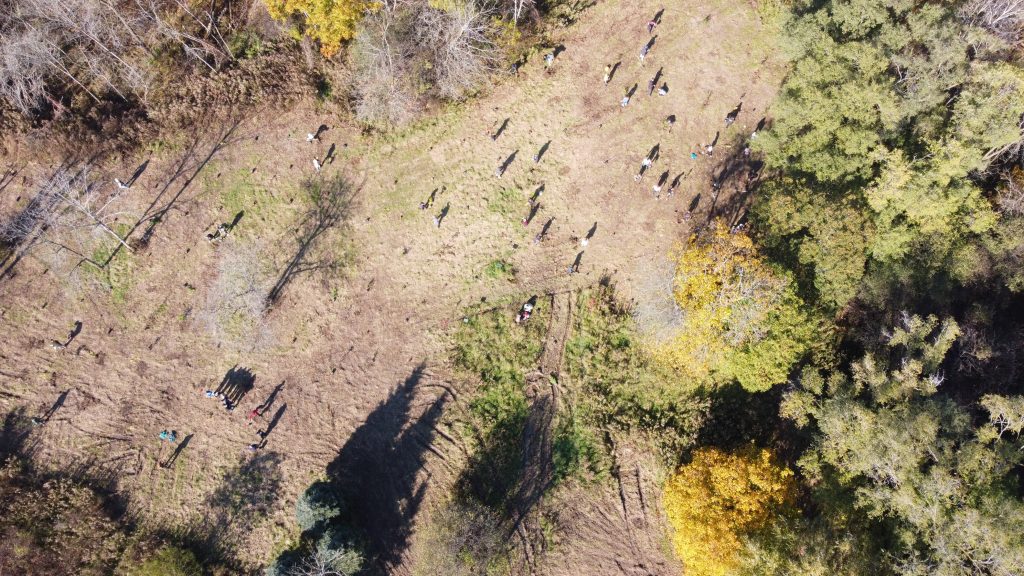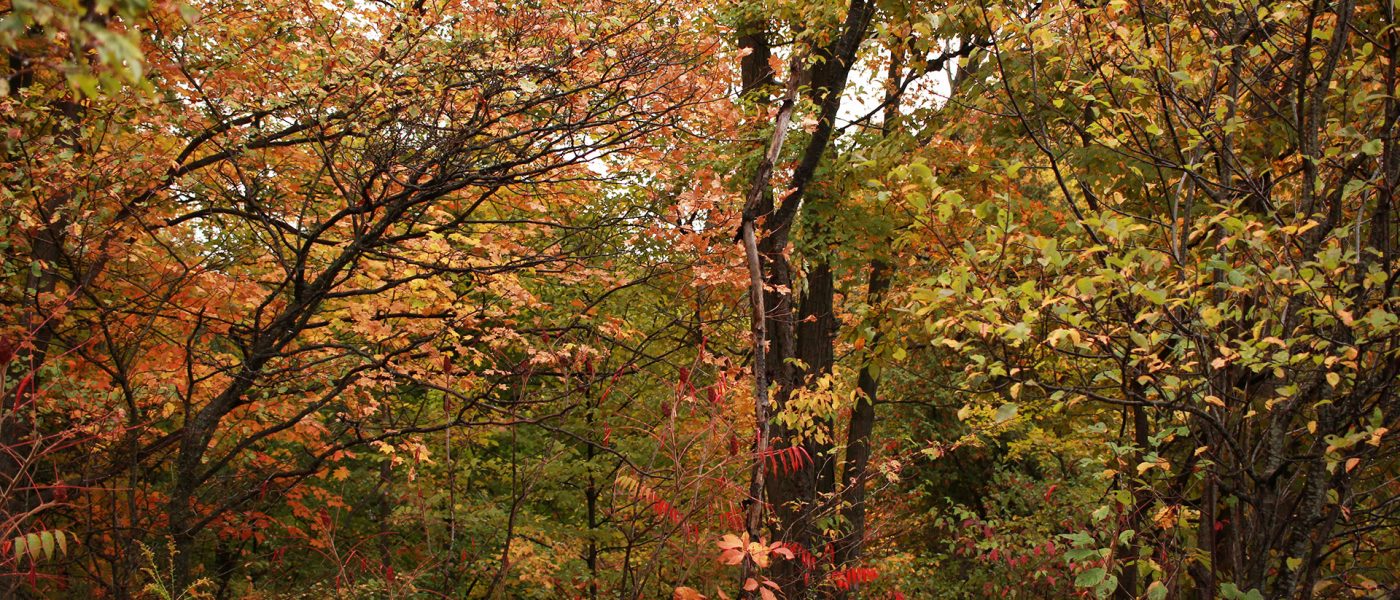Establish A Model Forest with McMaster
Work with us to establish a “model forest” that will sequester atmospheric carbon dioxide and help mitigate the effects of climate change. The McMaster Carbon Sink Forest initiative will develop a model forest where 1,000 native tree species will be planted to facilitate maximum carbon sink capabilities while also taking into consideration promoting and preserving biodiversity, sustainability, and conservation. A team of faculty and students will track the growth and health of each tree for years to come and share this data with other researchers working to grow carbon sink forests in Canada and around the world.
Established on a one-hectare plot beside McMaster Forest lands in west Hamilton, McMaster Carbon Sink Forest is accessible by walking, biking, public transit, or car.
Planting began on November 6, 2021 with 250 trees planted by students and members of the public. A second planting took place on Earth Day 2022. A third planting where students and volunteers expand the McMaster Carbon Sink Forest was held on November 5, 2022. The final planting took place on April 22, 2023.
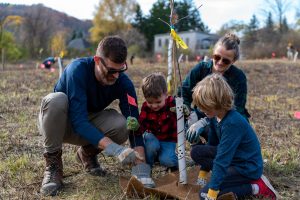
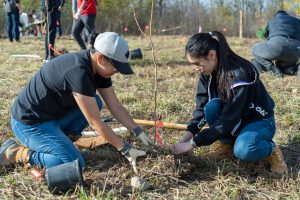
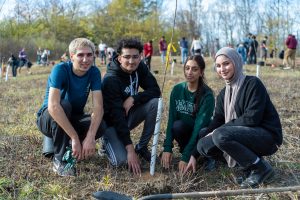
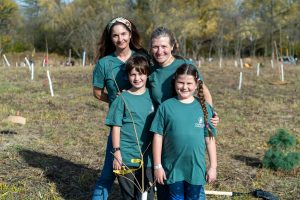
Considering a donation? Your gift will make a difference by supporting opportunities for collaboration with research groups, public and private organizations and individuals interested in environmental causes and climate change. The goal of this project is to plant trees that will develop the McMaster Carbon Sink Forest and create opportunities for student engagement and future research projects in the carbon cycle, biogeochemistry, hydrology, biodiversity, biological, geographic, remote sensing and forest ecosystem and human health studies.
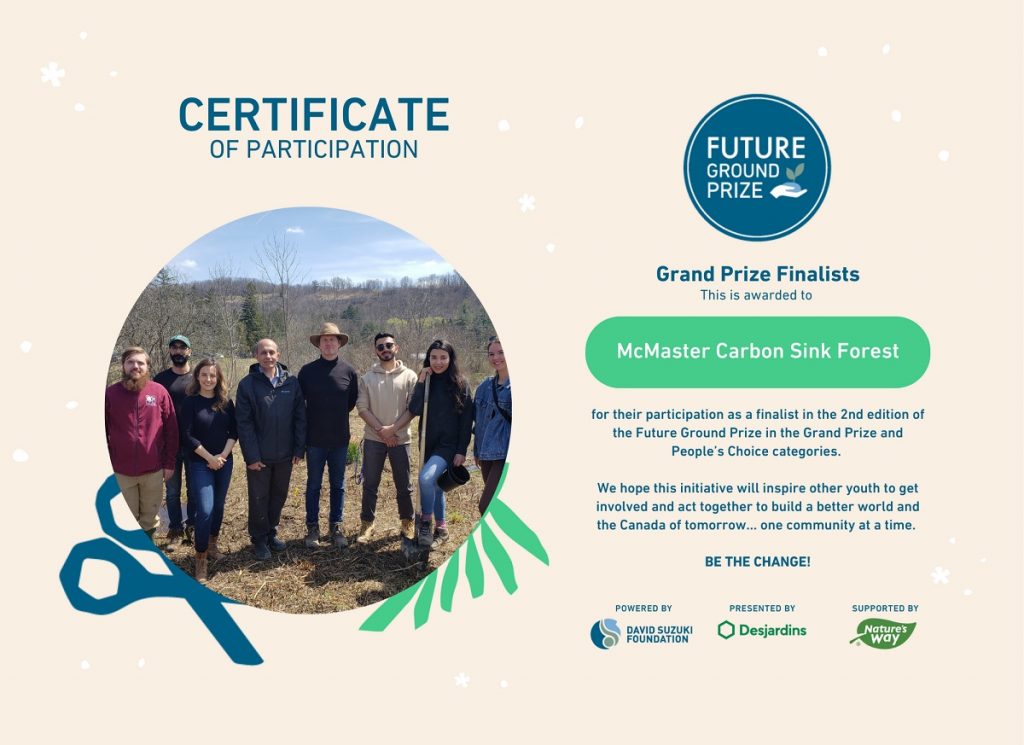
McMaster’s Carbon Sink Forest Grand Prize Finalist
The McMaster Carbon Sink Forest was one of the environmental projects shortlisted for the Future Ground Prize. The contest, run by the David Suzuki Foundation and supported by Desjardins, highlights youth-led initiatives in Ontario and British Columbia that have had a positive impact on the environment and local communities.
The forest is the latest research project by the McMaster Centre for Climate Change in collaboration with Nature at McMaster, the Academic Sustainability Programs Office, and Trees for Hamilton. The McMaster Carbon Sink Forest initiative strives to develop a “model forest” to sequester atmospheric carbon dioxide to mitigate climate change. The forest–established on a one-hectare plot in west Hamilton–will facilitate carbon sequestration through careful and thoughtful planting of 1,000 trees. More than a dozen different native, climate-adapted tree species are being planted gradually over the next year.
Education and Research Value
McMaster Carbon Sink Forest is an excellent example and living proof of McMaster University’s excellence in environmental teaching, research, and mostly importantly community engagement. It will provide numerous opportunities for collaboration with research groups, public and private organizations, and individuals interested in environmental causes and climate change.
Observations of the forest pre-planting and post-planting will create opportunities for student engagement and future research projects. McMaster Carbon Sink Forest will be a living learning lab. Biology and ecology students will be able to study tree growth, survival rates, understory vegetation, and wildlife. Biogeochemistry students will have the opportunity to study photosynthesis, respiration, carbon sequestration, and soil dynamics. Hydrology students can evaluate evapotranspiration, water table behaviour, infiltration, and tree water use. While geomatics students can conduct monitoring studies using GIS mapping, and drones and satellite imagery.
McMaster University is committed to working towards Canada’s net zero emissions by 2050 goal and dedicated to United Nation’s Sustainable Development Goals (SDGs).
Earth Day Canada Ceremonial Tree Planting
In 2022, Earth Day Canada kicked off its Earth Day national festivities by planting a ceremonial tree in the McMaster Carbon Sink Forest. The planting was attended by members of the McMaster Centre for Climate Change, Nature at McMaster, the McMaster Academic Sustainability Programs Office, Trees for Hamilton, and Earth Day Canada.
Maureen MacDonald, Dean of Science at McMaster University, Lejla Latifovic, McMaster Graduate Student, April Scholz, Earth Day Canada Development Officer and Jake Haskell, Treasurer of Earth Day Canada, participated in the planting of the first saplings.
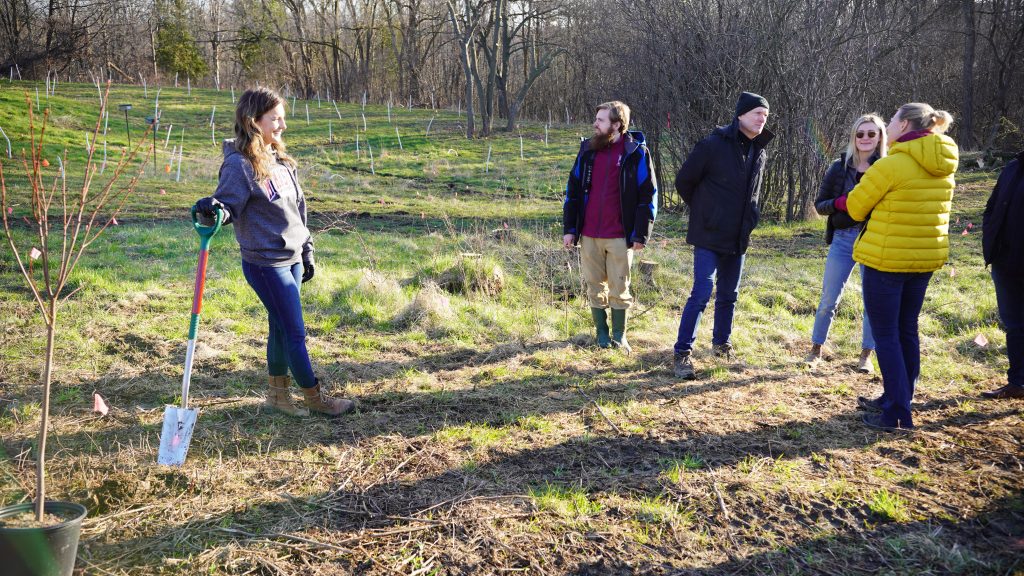
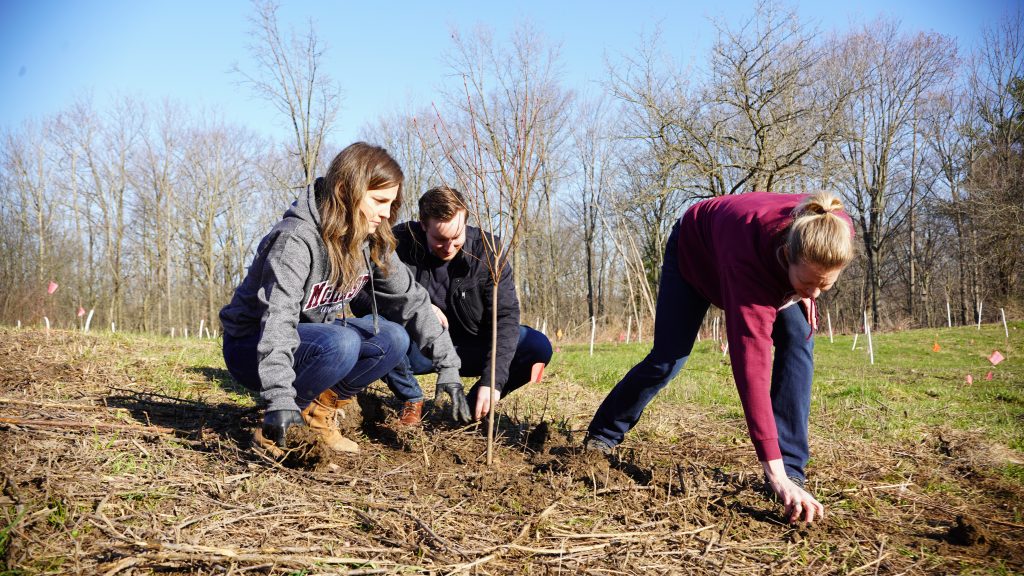
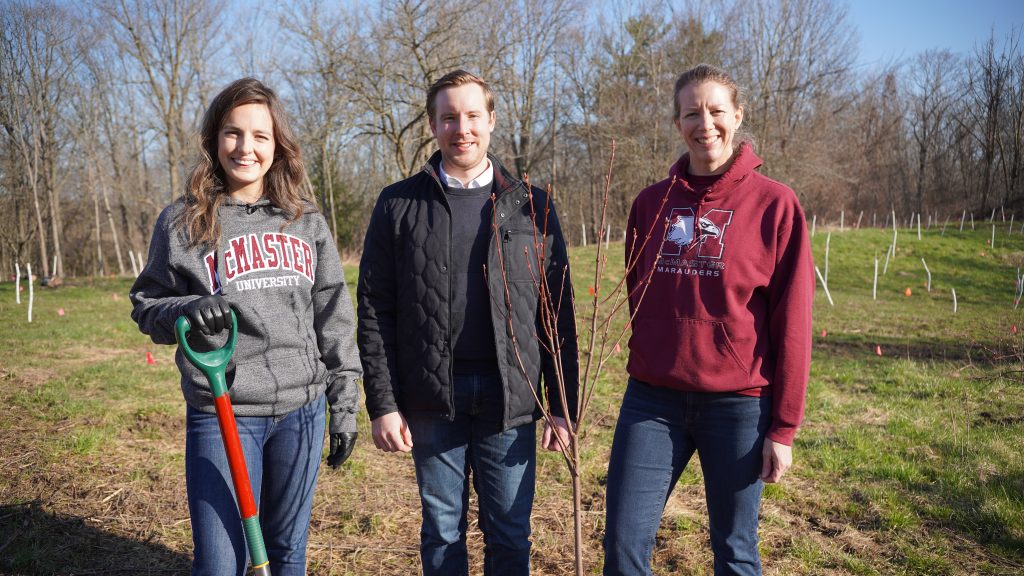
Expandable List
- McMaster Carbon Sink Forest trees will be native species well adapted to the climate in the Great Lakes region. They will have capabilities to sustain their growth and health in future climates; expect to have warmer temperatures and more extreme weather events.
- McMaster Carbon Sink Forest will provide many benefits to our community and its members, for example:
- McMaster Carbon Sink Forest will reduce the urban heat island effect, improve local air quality, enhance infiltration to reduce surface runoff, soil erosion and flooding, and become a sanctuary and habitat for birds, insects and small animals.
- McMaster Carbon Sink Forest will provide numerous health benefit to people too. Reducing stress, anxiety levels and blood pressure, increasing cortisol levels and aiding in faster healing from disease and improved mental health.
- McMaster Carbon Sink Forest will provide many opportunities for experiential learning, teaching, research and student and community engagement and outreach.
- McMaster Carbon Sink Forest will build on the ongoing research and knowledge acquired at McMaster University’s internationally renowned Turkey Point Observatory (TPO) near Turkey Point and Long Point Provincial Parks at Lake Erie in Southern Ontario.
- Since 2002, carbon sink capabilities of different-age and different-species forests and crops are being studied. See Turkey Point Observatory for more information on this important and ongoing research.
Expandable List
Tree Species for McMaster Carbon Sink Forest
| White Pine | Sugar Maple | Yellow Birch |
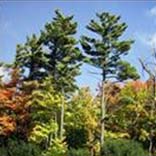 |
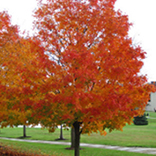 |
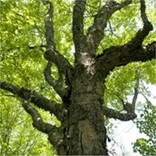 |
| White Spruce | American Basswood | Silver Maple |
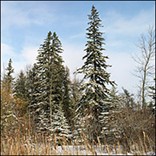 |
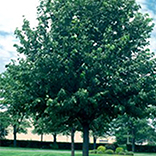 |
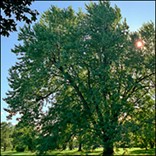 |
| White Oak | American Tulip | Eastern White Cedar |
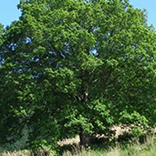 |
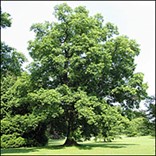 |
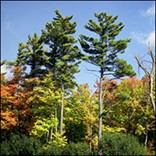 |
| Red Oak | American Beech | American Elm |
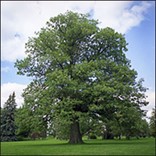 |
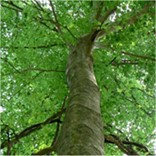 |
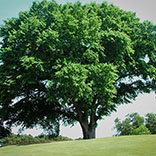 |
| Red Maple | ||
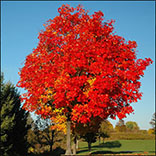 |
Collaborators & Landowner Appreciation
Presented in collaboration with McMaster and community organizations, including:
- Nature at McMaster
- Trees for Hamilton
- McMaster Centre for Climate Change
- McMaster Academic Sustainability Program
The McMaster Centre for Climate Change (MCCC) would like to thank and acknowledge Mark Tamminga and Bill Walker for their help and assistance with this project. Their generosity in allowing their property to be used for the development of a carbon sink forest is greatly appreciated by McMaster University and the MCCC.
Turkey Point Observatory
This initiative will build on the ongoing research and knowledge acquired at McMaster University’s internationally renowned Turkey Point Observatory (TPO) near Turkey Point and Long Point Provincial Parks at Lake Erie in Southern Ontario.
Since 2002, research at TPO has examined carbon sink capabilities of different-age and different-species forests and crops to fully understand their responses to future climate change and extreme weather events.
TPO is part of several global networks such as Global Fluxnet and Global Water Futures and its datasets are openly shared for use by the global community. More than 100 peer-reviewed papers have been published using TPO data in peer-reviewed journals such as Science, Nature, Global Change Biology, and Agriculture and Forest Meteorology.
Apart from studying biogeochemical and hydrologic cycles, the TPO project is also exploring different forest management strategies that can enhance carbon uptake, water use efficiency and sustainable development. It’s also looking at the use of these forests in future climates and helping in developing integrated biogeochemical and hydrologic models that can be applied at catchment scale for water resources, ecosystem conservation and carbon managements studies in Canada and internationally.
Knowledge acquired from the TPO project will be used to provide guiding scientific principles for the design, implementation, monitoring and sustainability of McMaster Carbon Sink Forest
Learn more about research taking place by McMaster’s Hydrometeorology and Climatology Group.
